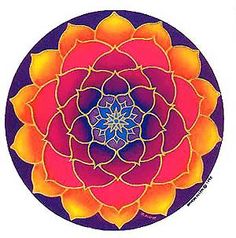Paradoxically, the ultimate test of courage is letting go.
This does not mean giving up work, dropping out and doing nothing. It does not mean giving up the struggle to be steady, honest, loving, vigorous and disciplined in our way of life, or giving up our attempt to consider and act upon what we consider to be right.
It means something much more profound. It means giving up the story we tell ourselves of who we are, and letting this go.
From our earliest age we are involved in a process of defining who we are, what sort of person we are. Our parents, friends, families and society collude with this task and we identify ourself with whatever we are told we are. As we adopt the labels and take them in we become fixed, we have found our personality. We accept this as truth and become what we are expected to be. In becoming fixed we lose our freedom to be who we really are.
To consider the notion that this is not really who we are at all, but simply a construction from our childhood is scary to say the least, for this is where our ground is and our landmarks lie. If we give up this, we are untethered, lost. We confront a sense of loss of our self.
This is exactly why it is the ultimate test of courage.
And this is where we gain all the rewards.
The notion may be terrifying but the process undertaken does not need to be. We can simply let go to get back to who we are. We let go of our attachments, we let go of our fear, we let go of our distortions, our long held beliefs and judgments. When we do this we find ourselves back here, where we started, fresh, alive.
As we release the patterns that we have been holding onto, we start to open up and relax. The energy that has been used to hold tightly onto who we are is released and we experience new vigour and zest for life. When we let go of the filters from our past we can experience life fully as it is, here and now. Without these filters we develop clear sightedness to see what is in front of us, and what is beyond.
We can let go of the past, the disappointments and the hurt. It has gone now. Unless we allow it, the past has no power over our life from this point on. We can face each moment afresh. The process is one of observing our patterns, and once identified, letting them go, one by one, gently, with compassion and with commitment to the process.
The more we let go of the past, the more present we become. Our life becomes rooted in the reality of the moment. When we have accepted ourselves as we really are, this moment, whatever it brings, can pose no threat. We trust ourselves. This is when we are fully alive, fully present, living wholeheartedly. This is courage.
When we let go of our concern over what other people think we should do, we are free to choose what we think we should do. When we let go of our fear of dying, nothing and no one can frighten us. When we let go of our need to be strong and accept our vulnerability, we become strong. When we let go of the stories we tell ourselves we are free to change. When we let go of our need to be something, we finally become who we are.
We become courage.
 When I reflect on these words there are two things I notice.
When I reflect on these words there are two things I notice. After a couple of years of study I am back at work in a corporate environment. I take all my learning from self-awareness, meditation and relaxation, and my new found resilience back into a familiar workplace, and still I am finding the stress levels rising as I meet negativity on a daily basis.
After a couple of years of study I am back at work in a corporate environment. I take all my learning from self-awareness, meditation and relaxation, and my new found resilience back into a familiar workplace, and still I am finding the stress levels rising as I meet negativity on a daily basis.

